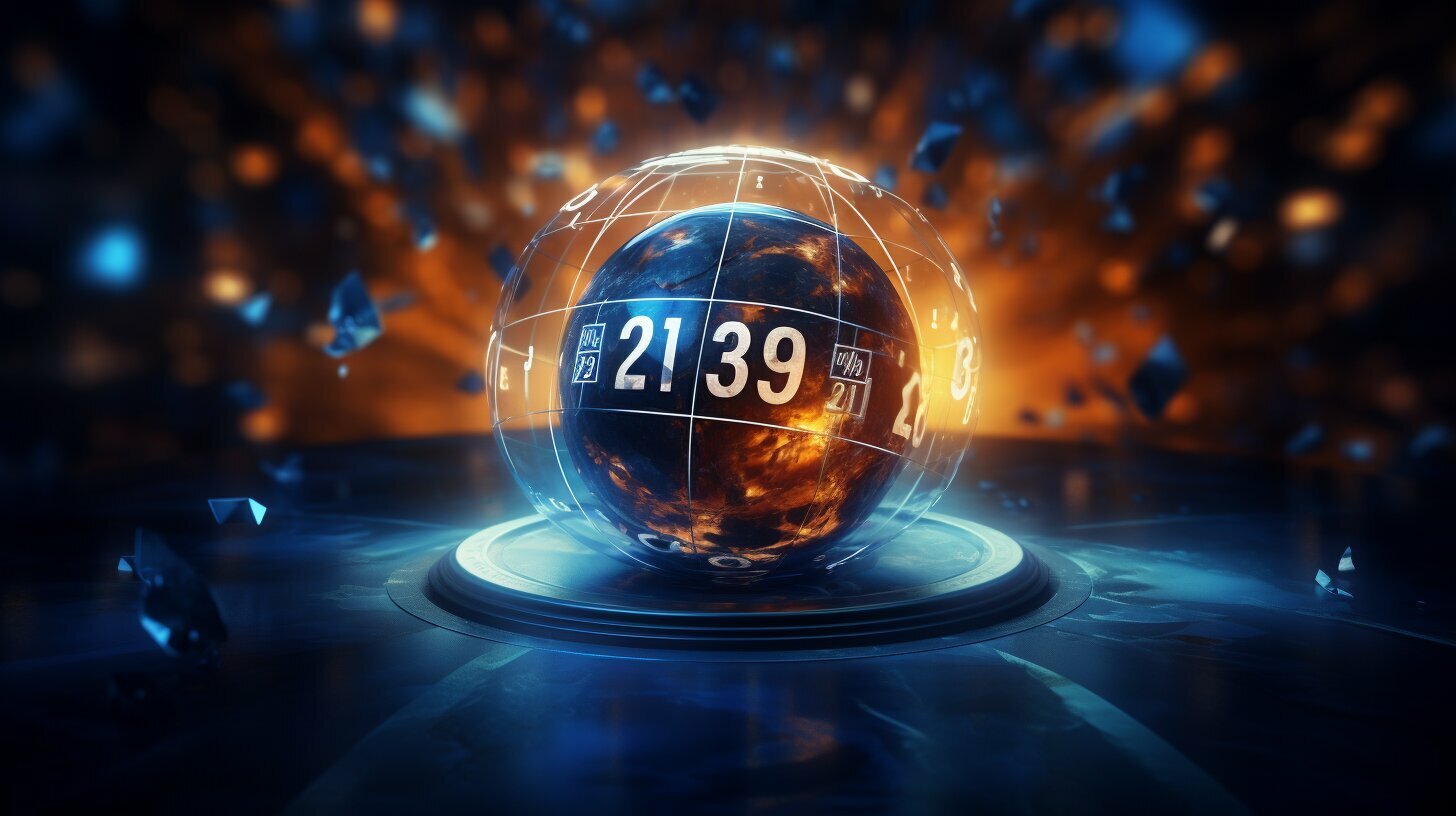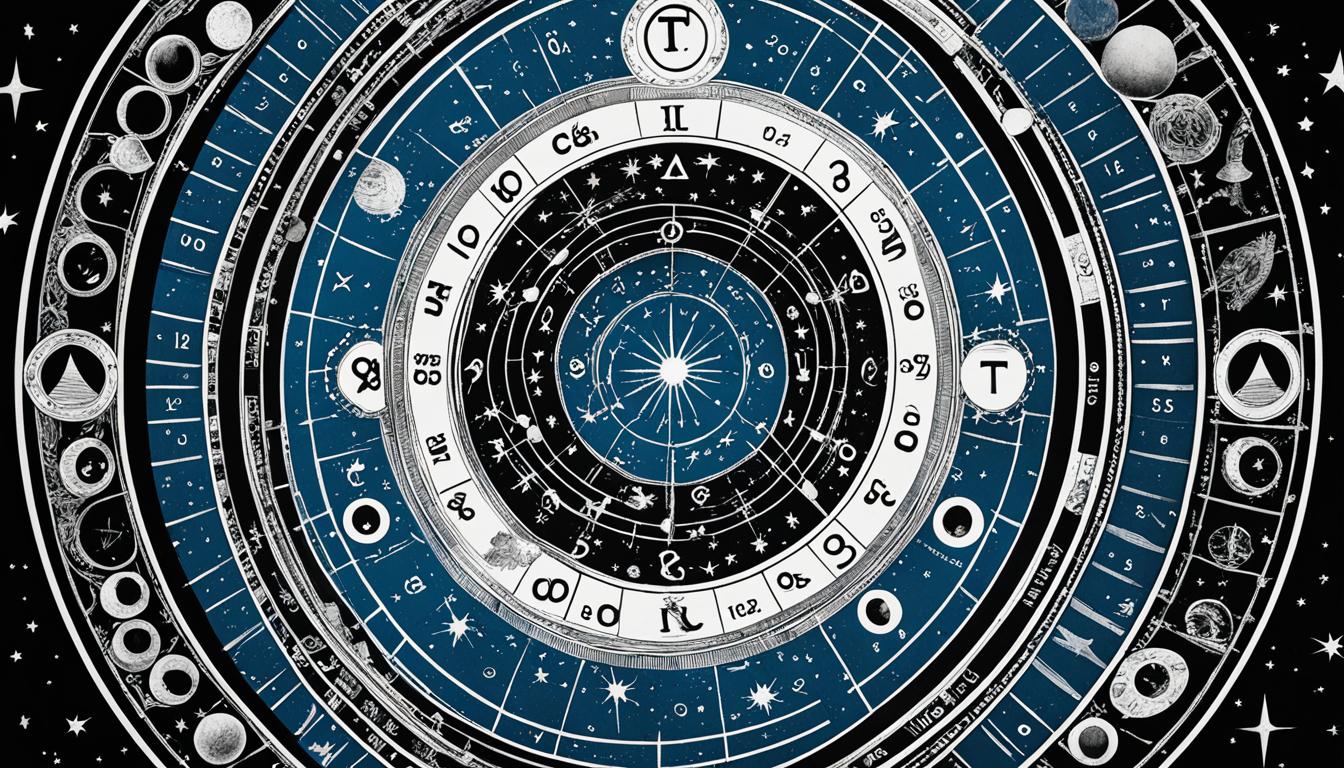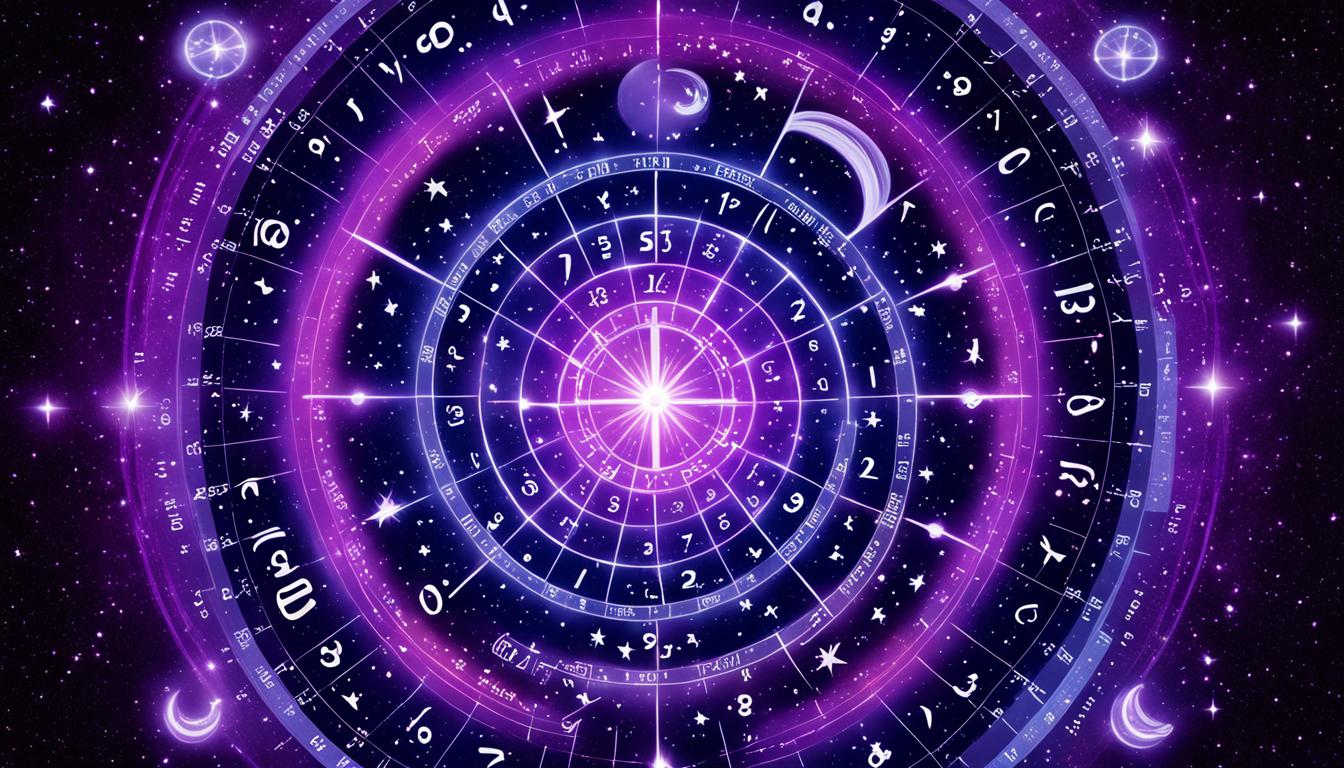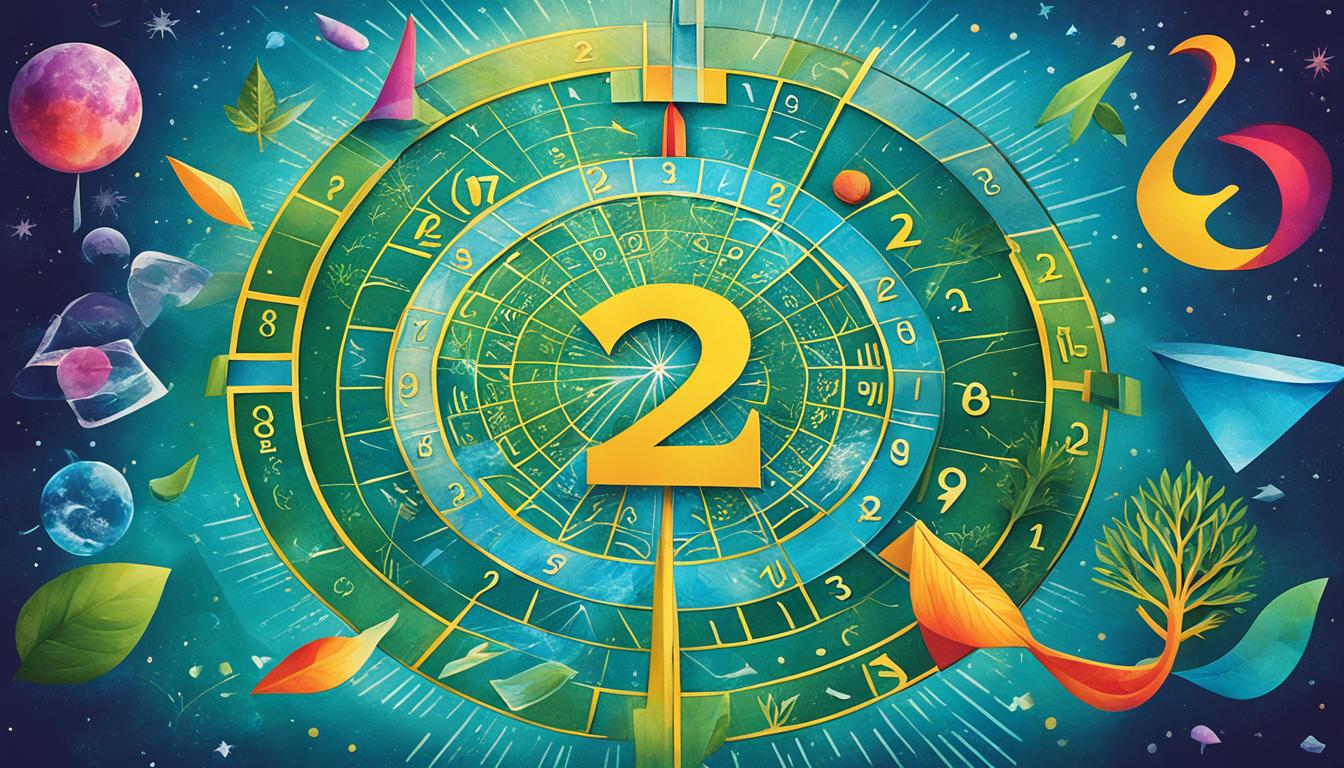Welcome to my article on the subject of numerology. I’m excited to delve into this topic and dispel some of the misconceptions surrounding it.
Numerology is a widely popular practice that claims to provide insight into one’s personality, future, and life path based on a set of calculations derived from birthdates and names. However, despite its popularity, numerology is a flawed and unreliable practice that lacks empirical evidence to support its claims.
Throughout this article, I will explore the reasons why numerology is wrong and address the criticisms surrounding its validity. We will delve into the principles and methods used in numerology, examine the pseudoscientific nature of the practice, and highlight the numerous flaws and inaccuracies within it.
Key Takeaways:
- Numerology is a flawed and unreliable practice that lacks empirical evidence to support its claims.
- This article will address the criticisms surrounding its validity and examine the principles and methods used in numerology.
- We will explore the pseudoscientific nature of the practice and highlight the numerous flaws and inaccuracies within it.
Understanding Numerology: A Brief Introduction
Numerology is a system that assigns significance to numbers, supposedly revealing information about one’s personality traits, life path, and future events. It is often used as a tool for self-discovery, decision-making, and divination.
The practice of numerology is based on the belief that numbers have inherent and symbolic meanings. The most commonly used methods of numerology are based on the Pythagorean system, which assigns numerical values to letters in a name or birthdate, and the Chaldean system, which assigns values to sounds in a person’s name.
Through various calculations and interpretations, numerologists claim to uncover hidden truths about a person’s character and destiny. For example, they may use a person’s birthdate to determine their life path number, or analyze the letters in their name to find their expression number.
Understanding the Flaws in Numerology
Despite its widespread use and popularity, numerology has been criticized for lacking scientific validity and consistency. Many of its methods and interpretations are based on subjective beliefs and arbitrary rules, making it difficult to test and verify its claims.
Furthermore, numerology often relies on ambiguous and vague interpretations, allowing for a wide range of possible outcomes and predictions. This lack of specificity and accuracy can lead to confirmation bias and the perception of accuracy where none exists.
It is important to approach numerology with a critical and skeptical mindset, recognizing its limitations and potential for misinterpretation. While it may provide some insight and guidance, it should not be relied upon as a sole source of information or decision-making tool.
The Pseudoscience of Numerology
While numerology claims to offer insights into a variety of life’s challenges, it is widely regarded as pseudoscience. As a journalist, it’s important for me to share with you the valid criticisms of numerology, and explain why it’s necessary to approach it with skepticism.
The practice of numerology is not based on empirical evidence, and instead relies on subjective interpretations. This is a major flaw in the practice, as the interpretations can vary widely among practitioners, leading to inconsistent and unpredictable results.
Misconceptions and Inaccuracies in Numerology
One of the biggest issues with numerology is the plethora of misconceptions and inaccuracies that plague the practice. Many people believe that numerology is a science, which it is not. Numerology is an interpretive art that relies heavily on personal beliefs and subjective interpretations with no scientific evidence to back its claims.
Another common misconception is that numerology can predict the future accurately. However, this is not the case. Numerology should not be used as a method to make important life decisions or predict future outcomes since there is no empirical evidence to support its claims.
Additionally, numerological predictions often fail to align with real-life outcomes, and therefore, there is no reliable evidence to support its claims. For instance, if numerology was a true science, every person born on the same date would have the same personality traits and life path, which is not the case.
Moreover, numerology relies heavily on the interpretation of numbers, which is often subjective. Different numerologists may interpret the same set of numbers differently, leading to inconsistencies and inaccuracies in numerological predictions.
Overall, it is crucial to approach numerology with a healthy dose of skepticism and caution. While it may provide some insights into one’s personality and life path, it is not a reliable method for making important life decisions or predicting the future.
The Skeptic’s Perspective: Criticism of Numerology
As a skeptic, I approach the practice of numerology with a critical eye, and I’m not alone in my doubt. Numerous valid criticisms have been raised against numerology, from logical fallacies to cognitive biases that influence interpretations.
One of the main issues with numerology is its lack of empirical evidence. Numerological readings are often based on subjective interpretations rather than hard data, which can lead to inaccurate or misleading predictions. Additionally, the principles of numerology have not been scientifically validated, making it difficult to assess its efficacy.
The Role of Confirmation Bias
Another flaw in numerology is its tendency to feed into confirmation bias. People often selectively remember the instances when numerological predictions seem to align with reality, while disregarding the countless times they do not. This can lead to a distorted perception of its effectiveness.
“Numerology is a great way to make sense of things that have already happened, but a terrible way to predict things that have not yet happened.”
This quote sums up the inherent flaw in using numerology for prediction – it’s only effective when looking back at past events, rather than providing guidance for the future.
The Role of Randomness
Studies have also shown that numerology is heavily influenced by randomness. In one experiment, participants were given fake numerology readings that were randomly generated. Despite the fact that the readings were completely fabricated, participants rated them as highly accurate and relevant to their lives.
This illustrates the power of suggestion and how our minds can create meaning from random information, leading us to believe in the accuracy of numerological readings even when they are not based in reality.
The Skeptic’s Takeaway
As a skeptic, I believe that numerology is an unreliable practice that should be approached with caution. While it can be a fun and interesting way to explore personal insights, it should not be relied upon as a tool for decision-making or predicting the future. Instead, it’s important to rely on evidence-based methods for personal growth and development.
The Role of Confirmation Bias in Numerology
One of the main problems with numerology is that it thrives on confirmation bias. Confirmation bias is the tendency to interpret information in a way that confirms pre-existing beliefs or expectations. In other words, people who believe in numerology tend to look for evidence that supports its claims rather than evidence that contradicts them.
When a numerological prediction seems to come true, believers in numerology often see it as evidence of its effectiveness, while disregarding the countless times it fails to align. This selective memory of instances can lead to a distorted perception of its accuracy.
“Numerology is a great parlor game and a way to impress your friends,” says Michael Shermer, the publisher of Skeptic magazine. “But the problem is when people take it seriously.”
The danger of confirmation bias in numerology is that it can lead individuals to make important decisions based solely on a numerological reading, rather than carefully weighing all the facts and possibilities. This can lead to poor decisions and negative outcomes.
It’s important to be aware of confirmation bias when considering numerological predictions. In order to make informed decisions, it’s essential to look at the evidence objectively and critically, rather than selectively interpreting it to fit preconceived notions.
The Role of Randomness in Numerology
Despite the claims of numerology enthusiasts, the practice is heavily reliant on randomness and chance. Numerologists often assign meaning to numbers without any scientific basis or evidence to support their interpretations.
Studies have shown that numerology cannot consistently predict outcomes or provide accurate insights. The results are often no better than random chance, with any apparent correlations being mere coincidence.
Furthermore, the selection of numbers and the methods used to derive meaning are subjective and vary from person to person. This lack of consistency further undermines the validity of numerology as a reliable tool for personal growth or decision-making.
The Cultural and Historical Context of Numerology
Understanding the cultural and historical context of numerology is crucial to debunking its claims of providing accurate insights. The practice of numerology dates back to ancient times, where it was used for divination and mystical purposes.
However, the cultural significance of numbers differs widely across different cultures and societies. The numerological systems used in China, India, and the Middle East, for example, differ vastly from the numerology commonly practiced in Western societies.
Furthermore, the interpretations of numerological symbols and their meanings are subjective and can be influenced by personal biases and beliefs. The same number can be interpreted as fortunate in one culture and unlucky in another, further highlighting the lack of consistency and reliability in numerology.
The Subjective Nature of Numerology
Numerology heavily relies on subjective interpretations and personal intuition. The same set of numbers can be interpreted in countless ways, and there is no consensus on what these interpretations should be.
This subjectivity makes it difficult to test the accuracy of numerological predictions and measure its effectiveness. Additionally, the lack of a standardized methodology and the absence of empirical evidence further question the validity of numerology as a scientific practice.
Numerology’s Evolution
Over time, numerology has evolved and taken on different forms. This evolution has led to the creation of different numerological systems and interpretations, further highlighting the subjective nature of numerology.
Some numerological systems have been modified to align with religious or spiritual beliefs, while others have been altered to suit personal preferences or cultural practices.
This constant evolution further highlights the lack of consistency and reliability in numerology, and reinforces the notion that it should be approached with skepticism and caution.
Empirical Studies Contradicting Numerology
Despite the popularity of numerology, empirical studies have consistently contradicted its claims. In fact, many studies have shown that numerology does not provide accurate insights or predictions.
One study conducted by the University of California, Berkeley, found that numerology did not accurately predict the personalities of participants. In the study, participants were given numerological readings and asked to rate the accuracy of the descriptions. The results showed that the readings were no more accurate than random chance.
Another study by the University of Melbourne, Australia, found that numerology was no more effective than astrology in predicting future events. Participants were given numerological readings and asked to predict upcoming events in their lives. The results showed that the readings were no more accurate than random chance.
Furthermore, a meta-analysis conducted by the University of Chicago found that numerology was not a reliable method for making decisions or solving problems. The analysis reviewed over 100 studies on numerology and determined that it did not consistently produce meaningful or reliable results.
Overall, these studies provide empirical evidence against the accuracy and effectiveness of numerology. While it may be tempting to rely on numerological predictions for guidance, it is important to approach them with caution and skepticism.
The Power of Self-Fulfilling Prophecies
One of the insidious ways in which numerology can seem to “work” is through the power of self-fulfilling prophecies. This effect occurs when individuals unknowingly alter their behavior and decisions based on numerological predictions, ultimately influencing outcomes. For example, if someone believes their numerology reading predicts a bad day, they might unconsciously look for evidence to confirm this belief and only remember negative events that happen throughout the day. This can lead them to become more anxious and stressed, causing further negative outcomes.
On the other hand, if someone believes their numerology reading predicts a good day, they may actively seek out opportunities and positive events to confirm this belief. This can lead to a more positive outlook and more favorable outcomes. However, this effect is not exclusive to numerology and can occur in many other areas of life.
It’s essential to recognize the power of self-fulfilling prophecies and the potential harm they can cause. It’s crucial to approach numerology and other predictive practices with skepticism and caution to avoid falling prey to these biases.
Conclusion
After exploring numerology in depth, it is clear to me that this practice is fundamentally flawed and unreliable. While it may offer some temporary comfort or insights, the lack of empirical evidence, logical fallacies, and cognitive biases exposed through this examination make it impossible to endorse the use of numerology for any serious purpose.
As we have seen, numerology is a pseudoscientific discipline that relies on subjective interpretations rather than empirical evidence. Misconceptions and inaccuracies abound in numerology, and valid criticisms point to the role of randomness, cultural and historical context, and the power of self-fulfilling prophecies in contributing to the perceived accuracy of numerological predictions. Even empirical studies contradict claims of accuracy and reliability, revealing numerology to be nothing more than a form of superstition.
Therefore, I encourage my readers to approach numerology with skepticism and caution. Instead, rely on evidence-based methods for personal growth and decision-making. While numerology may seem attractive for its simplicity and accessibility, it ultimately lacks the rigour and reliability necessary to guide us to our desired outcomes. Let us instead favour rationality, logic, and critical thinking in our journey towards personal growth and fulfilment.
FAQ
Q: What is numerology?
A: Numerology is a belief system that assigns meaning and significance to numbers and their relationship with various aspects of a person’s life.
Q: Why is numerology considered to be wrong?
A: Numerology is considered to be wrong because it lacks scientific evidence and relies on subjective interpretations rather than empirical data.
Q: What are some common misconceptions about numerology?
A: Some common misconceptions about numerology include its ability to predict future events accurately and provide definitive answers about a person’s life.
Q: Is there any scientific evidence supporting numerology?
A: There is no scientific evidence supporting the accuracy or validity of numerology. Empirical studies have consistently contradicted the claims made by numerologists.
Q: Can numerology be used for making important life decisions?
A: Relying solely on numerology for making important life decisions is not advisable. It is recommended to approach such decisions using a more evidence-based and rational approach.
Q: How does numerology feed into confirmation bias?
A: Numerology can feed into confirmation bias by selectively remembering instances when numerological predictions seem accurate while disregarding the countless times they do not align.
Q: Does numerology have a cultural or historical context?
A: Numerology has a cultural and historical context, but its practices have varied across cultures and time periods, highlighting the subjectivity of interpretations.
Q: Are there any valid criticisms of numerology?
A: Yes, there are valid criticisms of numerology, including logical fallacies, cognitive biases, and the lack of reliable evidence to support its claims.
Q: Can numerology provide accurate insights into a person’s life?
A: There is no scientific evidence to support the claim that numerology can provide accurate insights into a person’s life.
Q: What is the role of randomness in numerology?
A: Randomness undermines the claims of numerology by demonstrating its inability to consistently produce meaningful and reliable results.
Q: How does the power of self-fulfilling prophecies relate to numerology?
A: The power of self-fulfilling prophecies can contribute to the perceived accuracy of numerology. Individuals may unknowingly alter their behavior and decisions based on numerological predictions, ultimately influencing outcomes.



